|
Image: @TheHappyTalent Hello, today's teenagers. I know you don't remember this, but back when you were three months old, you likely began showing self-soothing behaviors — that is, you began learning how to calm down, relax and go to sleep again in your bed. By the time you were six months old, your parents were actively encouraging you to self-soothe, as this is around the time you could make it through the night without needing to be fed. And I'll bet you were crushing it! Here's my question for you: Are you still crushing it? Or do you feel dependent upon your phone and your friends to make it through the night? In all likelihood, you are a worse self-soother now than you were as an infant — and this should worry you. It's not your fault, exactly. You didn't choose to be born into a world with constant connectivity. You didn't choose to design social media apps that are as addictive as possible — that are designed to hijack your reward centers and create a constant need for approval and interaction. That's just the world you were born into. And I'm tremendously glad that's not the world I was born into. Even as an adult who did not grow up with smartphones and social media, I find myself reaching for my phone to message a friend for support at every major and minor setback. I'm disappointed in myself because I'm going to be five minutes late for a meeting for a dumb and preventable reason. A man at the park yelled at me because I let my dog swim in the fountain. My mom made a snarky comment that kind of stung a little. It's a natural response to any kind of adversity in today's world. We're constantly connected, so why not share our problems and seek comfort and commisery whenever something doesn't go according to plan? But here's the thing: Once in a while, something goes wrong, and I'm not right by my phone. Something goes wrong, and I don't have any cell service. And guess what? I survive. Not only that — I thrive! I spend less time ruminating over the problem. I spend less time pointlessly complaining and feeling sorry for myself. I spent less time feeling helpless. Instead, I solve the problem. By myself. And it's weirdly empowering. So for example, I recently overcame my fear of towing, bought a 29-foot fifth wheel, and started a two-year solo adventure around the US. Image: The Happy Talent on Facebook It's mostly been great! But a few weeks ago, I drove down a sandy road — it was a little less "road," a little more "tire tracks in the sand between the trees — in Ocala National Forest, where I'd planned on boondocking (dry camping) for the night. I'd already looked at the satellite map to confirm I'd be able to turn around at the end of the road. However, right before the turnaround — literally 3 meters before the turnaround — a large, low branch was blocking me from going any further down the road. Shit. Shit shit shit. There was no possible way for me to turn around, and I didn't know if I could back out. Reflexively, I reached for my phone. No service. Meaning I couldn't message my friends or family about my situation. Meaning I couldn't even call the ranger or the fire department or whoever might be able to help me out of this situation. Shit. Shit. Fuck. One possible solution, I thought, would be to remove the branch, right? So I climbed up into my truck bed, jumped into the air, and grabbed the branch. It bent under my weight — yes! Once I got my feet on the ground, I might be able to break the branch. The tree had other plans. Right before my feet touched the ground, the branch snapped back up, catapulting me into the air. Luckily, I wasn't upset enough not to see the humor in that situation. I reached for my phone to message my friends about this comical development. Right — no service. I assessed the situation further, looking for any possible way I might be able to turn around. A 72-point turn? Sawing through the branch with my tiny little hand saw? Walking however many miles back toward town, then calling for help once I had service again? Finally, I realized the only solution was going to be backing all the way down the road. I knew it was going to take at least an hour — maybe two, maybe more — and took comfort in the fact that I still had plenty of daylight left. And guess what? I did it. It took over an hour of backing up a little bit, putting it in park, walking to the back of the rig to make sure there was nothing behind me (I don't have a backup camera), getting back in the truck, pulling forward, straightening out, backing up a little more, getting out and checking again, cutting it to the left, cutting it to the right, pulling forward and trying again... But I finally freaking did it. All by myself. The look on my face when I finally got settled says it all: Image: @TheHappyTalent I was so proud to have gotten myself out of that situation. I was so proud to know I did it by myself. Later, I realized that this is how most people handled most adversity for most of human history. Which is why I was sad and surprised to see this answer on Quora: Should teens be allowed their phones at night? Teenagers. I get that you think your life is hard. I can even admit that your lives are a lot harder than mine was. Even in the last 15 years, adolescence has changed so much, and I'm grateful every single day that I grew up before smart phones. I'm grateful that for my generation, bullying only happened at school — for you, bullying never stops, and there is nowhere you can go to escape from it. I'm grateful we didn't have screenshots and slut pages and social media accounts and photo editing tools that made our own peers impossibly beautiful. I'm grateful we had opportunities to develop boundaries and social skills, and that streaming porn didn't kill eroticism and intimacy for us. I'm grateful that when I applied to college, acceptance rates were literally double what they are now — I thought it was pretty cool when I got into Stanford, because they "only" accepted 9% of their applicants. Now, that number is closer to 3%. Even if our lives were exactly the same — which they're not — I would still understand why you think life is stressful and hard. Neurochemically, your brain is going haywire — yay, puberty! Your amygdala, which is responsible for stress, anxiety, and other negative emotions, is hyperactive. Your prefrontal cortex, which is responsible for decision making and foreseeing consequences, is underdeveloped. In many ways, high school has always been the worst idea ever, because never at any other time in human history did we take all the people whose brains were going through such rapid development... and stick them al in the same place to compete with each other eight hours a day, five days a week. THAT SAID. I still can't get behind this teenager's argument for why teens need their phones all night, every night. And here's why. 1. If you could get through the night by yourself as a baby, you can definitely do it now. Yes, your amygdala is hyperactive. But you're not a baby anymore. You are totally capable of developing the self-reliance and self-soothing skills to go back to sleep on your own, just like you used to when you were a baby. The reason you feel like you can't is because you haven't needed to. You've always had your phone, your instant, constant connectivity, to comfort you. But you don't need it. You really don't. 2. Your brain and body are developing. You are trying to do well in sports, extracurriculars, and school. All of these things require a good night's sleep. Looking at a screen is highly disruptive to your sleep cycle. I know it's not exactly practical advice, but, really, experts say you should stop looking at screens at least two hours before bedtime. Much of your homework is done online now — and sadly, much of your life is lived online now. Two hours is likely not an attainable goal. But, really, if you want to do what's best for your body, your brain, and your academic performance (learning happens best when your brain is well-rested — when I was in high school, I outperformed many of my peers who studied much more than I did, simply because my brain was better rested, so I was able to learn and retain more information than they were), you should stop looking at screens as long before bed as possible. We've all heard about the rise in teen suicides (sadly, that's one area in which girls are rapidly closing the gender gap). I know one adolescent psychiatrist who thinks at least part of the reason for this is screen time before bed. When you get less and worse sleep (which is what happens when you look at screens — especially video games) before bed, every good thing that happens to you feels less good. And every bad thing feels a thousand times worse. 3. Waking your friends up in the middle of the night is actually a pretty selfish thing to do. You should only do it if there's an absolute emergency. Everything I just said, about sleep, academic performance, physical health, and mental health? That's true for your friends, too. When you wake them up in the middle of the night because you had a scary dream or you're feeling anxiety about a homework assignment, you're causing all the bad things that I just described to happen to the people you care about most. I've definitely woken loved ones up in the middle of the night before — but rarely, and only for an absolute emergency. It's extremely selfish to wake someone up because you can't sleep. If your friends are doing it to you, you need to talk to them about having healthy boundaries. Or, better yet, stop sleeping with your phone under your pillow. You deserve a good night of sleep. 4. Yes, things are harder when you're alone, at night. But part of being an adult is learning to manage your own emotions. The teenager I quoted earlier correctly and wisely identified nighttime as one of the hardest times when you're going through something difficult. And there will never be a time in your life when this isn't true. When my friends go through a hard breakup, even in their 30s, I know night is going to be a hard time for them. The day is full of activities and distractions. The night can quickly become a waking nightmare. This is exactly why good sleep hygiene is important. This is exactly why having a strategy for disrupting toxic thought patterns — counting sheep, praying, listening to an audiobook with a 15-minute sleep timer, meditation, visualization – is important. 5. Y'all don't have the cognitive skills to "learn your lesson quickly" when you can't function the next day — both because of your brain development, and because of the very design of your phone apps. "I can assure you that if they do, they will learn their lesson quickly once they are unable to function the next day. It'll help them develop self control, which is valuable to have." The premise is incorrect. Remember: your PFCs are not fully developed yet. The part of your brain that foresees consequences is underdeveloped — and the amygdala is hyperactive. Moreover, your apps are designed to make you addicted. They're designed to activate your reward centers and keep you looking at them for as long as possible. Controlling our phone, social media, and streaming video use is hard, even in adulthood — meaning that even if you have a precocious PFC, and even if your amygdala is totally under control, resisting the temptation to look longer at your phone is going to be difficult. Even as an adult, I'll sometimes get out my phone to check something quick before bed... And an hour (or two) later, I'm still looking at my phone. If it's hard for me, it's going to be even harder for you. 6. Learned helplessness sucks. Independence and self-reliance are incredibly empowering. Going back to what I said earlier. Even if all I did was survive showing up five minutes late for a meeting... I feel oddly empowered when I get through that myself, instead of involving friends in my micro-drama. Developing independence and self-reliance is going to make you happier, healthier, more mature, and a better friend and student. You are stronger than you think you are. And I truly believe that if you could do it as a baby, you can definitely do it now. *** This is why I think you should not sleep in the same room as your phone. This is why I think you should make an active effort to solve your problems on your own — even if you start with just one small one, once a day. This is why I think next time you're awake in the night, stressed or upset about something, you should follow the advice on my cool pink hat: Image: @TheHappyTalent You can do it. You really, really, really can. *** Want to know more? Check out: How to Raise an Adult: Break Free of the Overparenting Trap and Prepare Your Kid for Success, by Julie Lythcott-Haims: The Coddling of the American Mind: How Good Intentions and Bad Ideas Are Setting Up a Generation for Failure, by Jonathan Haidt: The Sleep Solution: Why Your Sleep is Broken and How to Fix It, by W. Chris Winter, MD: The Subtle Art of Not Giving a F*ck: A Counterintuitive Approach to Living a Good Life, by Mark Manson.
4 Comments
Liz
3/30/2021 02:05:53 pm
Great post. I too am really glad that adolescence is over with. Considering how much I struggle to manage my phone usage as an adult, I can't even imagine how much harm it could've done to me in my teen years. Between the effects on the brain and the time it takes away from more valuable pursuits (to say nothing of cyberbullying, etc.), it just would've been really damaging.
Reply
Rafferty
8/7/2021 09:00:14 pm
I disagree with a lot of what you said, and you don't have any citations, other than some books I would have to track down and buy, and they don't seem to be sources, more like additional reading materials; do you have any links to resources you used or information you looked at other than an anecdotal experience - or even the, I assume, Quora post that inspired this article? It would be nice to look at the information you're using to justify your take, but there's nothing to check! I've clicked every link and they all seem to self-cite! I don't know your personal qualifications, but if i handed in this article's form of citing I would be severely reprimanded and, depending on the work, dropped from my course. Just from a quick perusal I think this is an underlying and undermining symptom of your work.
Reply
8/19/2021 09:53:34 am
I didn't link to the original Quora post because the OP was a literal child and it didn't seem appropriate.
Reply
Rafferty
8/7/2021 09:00:49 pm
apologies, forgot the email
Reply
Leave a Reply. |
About the Author

Eva is a content specialist with a passion for play, travel... and a little bit of girl power. Read more >
Want to support The Happy Talent? CLICK HERE!
Or Find me on Patreon!
What's Popular on The Happy Talent:
Trending in Dating and Relationships:
What's Popular in Science: Playfulness and Leisure Skills:
Popular in Psychology and Social Skills:
Categories
All
|
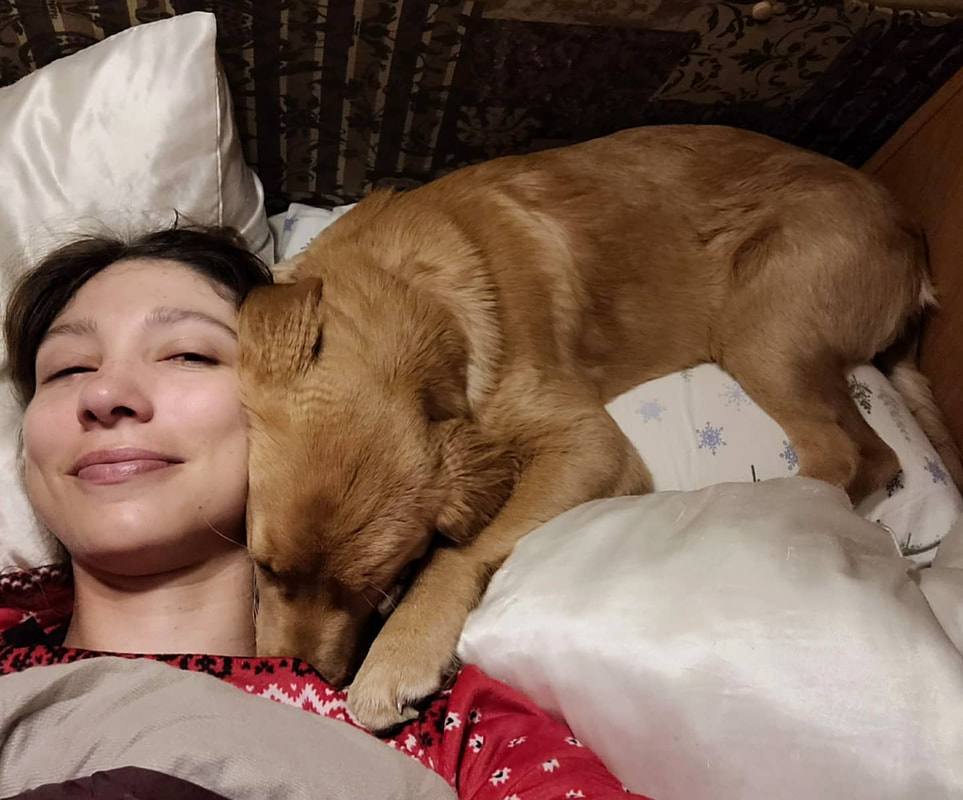




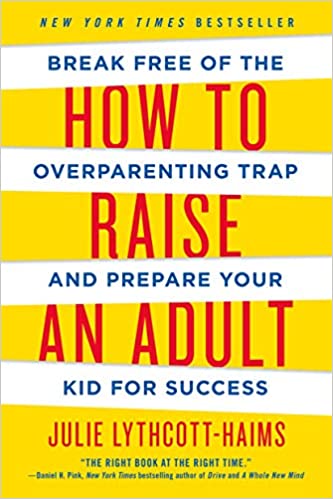
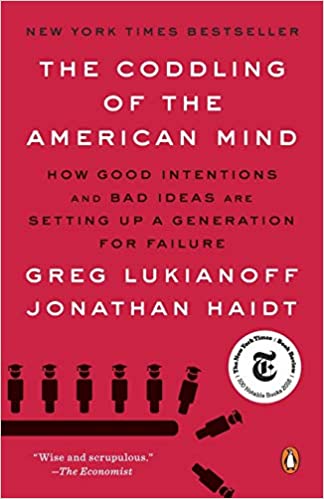
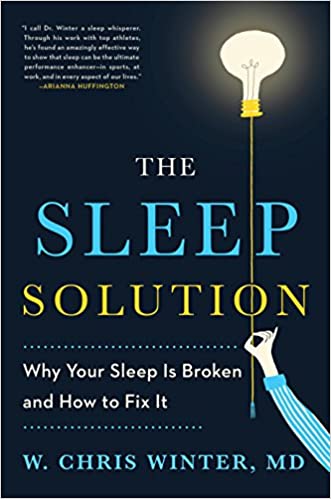
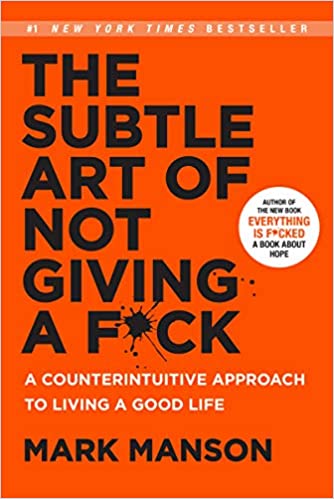

























 RSS Feed
RSS Feed